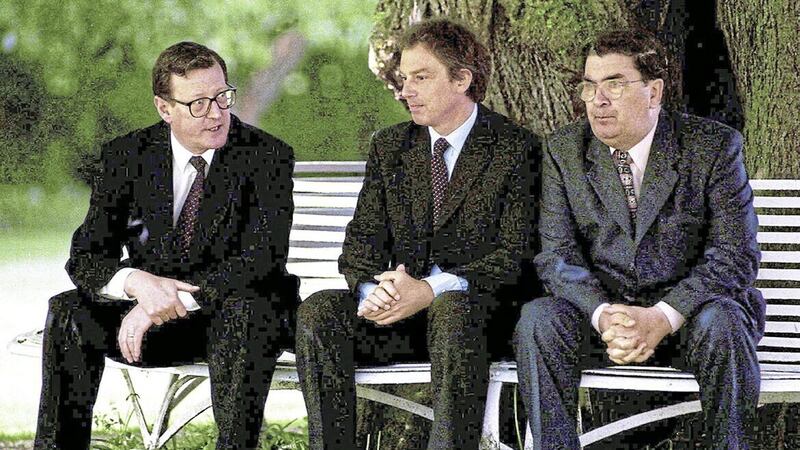There is a technique in psychology that when a person or group of people are stuck, incapable of talking about their innermost feelings, the therapist must get personal and talk about some of his or her own issues.
It helps move the atmosphere from the defensive and the argumentative to the more empathetic and honest.
Politically, we are stuck.
Most people seem to agree, or at least suspect, that the long-term settlement of the Anglo/Irish issue will be some form of Irish unity, but the interim years, until then, will be frustrating.
After a hundred years of a partitioned island, nationalism has moved to a positive disposition and is willing to talk about the future. The numbers and the momentum have swung in favour of the broad nationalist vision.
Unionism believes that to talk about the future at all is an admission of defeat – the beginning of the end of the union.
Personally, I am a born, bred, emotionally and intellectually convinced one-Ireland person. While I do not underestimate the importance of the social, cultural and economic, I believe in one Ireland because I observe the damage done to both parts of Ireland by partition.
Born on the southern side of the border, I have lived and worked on the northern side all of my adult life. My observation is that partition has badly fractured this small island and its people, and I believe that the fracturing will never be fully healed until there is a coming together – a complex coming together that the greater number of people can adopt and are content within.
Partition enabled people (helped by politics and religion) in both parts of the island to incubate the worst features of themselves. Those features are widely documented and are summarised in a distorted narrowing of political identity and religious intolerance.
But, ironically, the worst features of either side are challenged and ameliorated by the strong and best features of the other side.
Both parts of the island are also marked by the reality that they were established by the threat and the ugliness of violence, something that leaves a deep mark in the communal psyche.
That is why the SDLP must not die – at least not for a time yet. They still have work to complete.
Born out of a reaction to violence, they were never a normal ideological political party. Their job is to be the therapist to future discussions. Sinn Féin may have the votes, but it is the SDLP who have the narrative and the authenticity to facilitate the coming debate.
It is unfortunate that Fianna Fáil did not develop a proper partnership with the SDLP. It would have enhanced the standing of the SDLP in the important role they have to play. Despite that, they now need to resurrect the analysis of their founding father, John Hume, and to reassert the powerfulness of his voice. After enough healing has taken place, they may well decide their job is done.
That is also why Alliance must come off the fence. Not to initially declare allegiance to either union, but to use their casting vote to construct a mechanism that allows all sides to engage in debate and negotiations about the future of the island.
If they are looking for a prototype to talk about that future whilst freeing up current politics, it is available in a lecture given by Peter Robinson at Queen's University a few years back. He has never retracted his analysis on the need to talk about the future of the island.
Therapy doesn’t always work or produce the freeing and the healing that is desired, certainly not in the short-term. Walls that have been built over decades are not easily removed.
But therapy often has a residual effect of loosening the cement that holds the walls in place, allowing for greater openness. It is time to get personal.









